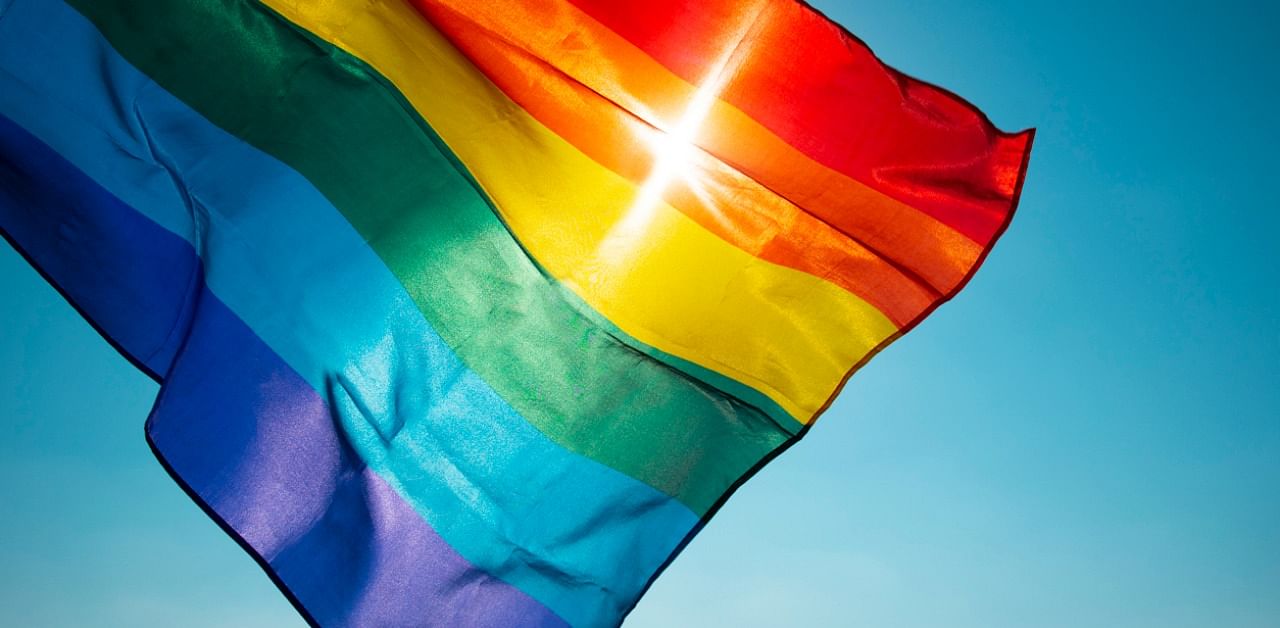
Pride flag.
Credit: iStock Photo
On September 6, 2018, the Supreme Court repealed Section 377 of the Indian Penal Code, a law that criminalised homosexuality. Community members and campaigners waiting outside the Supreme Court cheered and danced joyfully while some cried.
As the community now awaits the verdict on same-sex marriage, the question that’s being asked is what has changed in the workplace in five years. Are members of the community experiencing inclusivity in society and within their organisations?
Zoya, Lead of diversity, Inclusion and Employer Branding at a real estate firm, says, “It has improved relatively to what it was before. But the legal status of acceptance and the social acceptance of being seen as an equal is another aspect altogether.”
Shyam Konnur, Founder and Managing Director of MIST LGBTQ+ Foundation, says, “This has encouraged many community members to live confidently post-377. But this is more true for the younger members of the community. We also find that while more people are ‘coming out’ at the workplace, we still handle cases where people see only token allyship.”
Evidently, while there is a definitive positive shift, the changed law has not naturally translated to a holistic positive experience.
Gaps in inclusivity
Community members say that a big gap that exists is the lack of safe workplaces, which facilitates the process of ‘coming out’ for an LGBTQ+ member. Having to constantly navigate an environment to remain hidden and avoid potential biases against them is emotionally draining. It also impacts the levels of engagement with the organisation. ‘Coming out’ is a crucial step forward, as it creates the right platform to live authentically without having to self-edit responses or avoid questions. It also drives commitment.
“Organisations fail to see this as an important aspect in creating a safe environment for all their employees,” says Shyam.
Deloitte’s Global 2023 LGBTQ+ inclusion at work report reveals that many LGBTQ+ employees feel uncomfortable being out in the workplace and face non-inclusive behaviours such as microaggressions and harassment. The study, which covered 5,474 LGBTQ+ people in workplaces from 13 countries, reveals that while most respondents believe it is important to come out at work about their sexual orientation, less than half feel comfortable being out with all their colleagues. Another third reported that they are only comfortable being out at work with select colleagues.
“The fact that there is a need to ‘come out’ itself means there is an issue. Still, many workplaces are not accepting of LGBTQ folks. I have never liked the term ‘coming out’; I prefer ‘inviting in’ because I let people know additional information about me because I trust them,” says Zoya.
“‘Coming out’ is an ongoing process,” says Harish Panchabhai, Senior Associate, Diversity, Equity and Inclusion at a consulting firm. “‘Coming out’ was simple for me because of our progressive culture.” He explains how his firm has inclusive policies, such as insurance covering same-sex and live-in partners and medical costs for gender transition.
Mitigate discrimination
Inadequate intervention to mitigate discriminatory experiences is yet another gap. Harish says, “It is always the subtler aspects of exclusion. Someone who holds biases may not express them openly, but their actions can make their colleagues feel left out or unheard. Shifting mindsets is not easy, and change doesn’t happen overnight.”
The Deloitte report alludes to the positive impact that employers have when they demonstrate their commitment to LGBTQ+ inclusion, which drives career decisions amongst community members. “During interviews, if I experience a less than enthusiastic response or sense that the organisation is not committed towards Diversity and Inclusion, I do not feel comfortable taking the conversation further. I fear that in such a workplace, I may experience discrimination,” says a gay man preferring anonymity.
Organisations not only play an important role towards LGBTQ+ inclusion, but they also have benefits to be accrued - a larger talent pool, a more engaged workforce, and a positive brand image, to name a few.
“Most inclusive companies are performing well,” says Shyam. But he also has a word of caution: “Don’t limit it to just becoming a business gimmick as the world is watching.”
Building a culture of allyship
Zoya advises, “Be an equal opportunity employer and focus on increasing representation for marginalised groups. Review policies from an equality, equity and inclusive lens. Make process changes to be inclusive of diverse groups and their needs.”
Allyship in the workplace refers to the actions, behaviours, and practices that colleagues and leaders take to support, amplify, and advocate with others, especially with individuals who don’t belong to the same social identities as themselves. Building a culture of allyship is an important step organisations need to consider.
Harish says, “At my organisation, we actively promote open communication. Our people are encouraged to connect with affinity group leads or the DEI team if they’re eager to learn more about allyship. These steps not only help allies connect more effectively with the community but also expand their understanding of the obstacles that members of the community face.”
“The first step is to believe in human rights and unlearning to hate. Embrace equality and learn,” says Shyam. He says these are important steps to take towards becoming allies and not just passive observers.
True allyship is active, not passive. Elie Wiesel, a Holocaust survivor who advocated human rights, said, “We must take sides. Neutrality helps the oppressor, never the victim. Silence encourages the tormentor, never the tormented. Sometimes, we must interfere.”
As a country, we still have a long way to go. Inclusivity can no longer be seen as a ‘good-to-do’ activity. Respecting the rights of all people to live with dignity and equal access to resources and opportunities is the cornerstone of inclusivity.
(Reji Varghese is an industrialist and a writer. Deepa A Agarwal is a diversity, equity and inclusion expert)